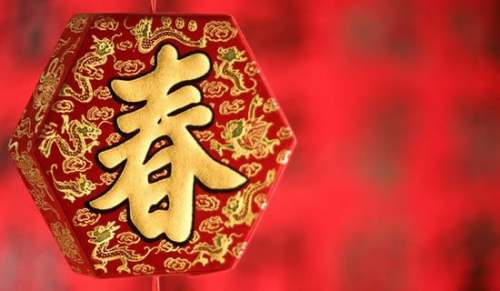春节起源英语版
导语:春节的历史很悠久,传说早在新石器时期尧舜时就有过“春节”的风俗。 下面是由小编整理的关于春节起源英语版。欢迎阅读!

篇一:春节起源英语版
The lunar calendar new year origin, has the basis, also is rich and picks the varied fable to be possible to trace to sral millenniums before; Most is famous is "the year beast" fable. "The year beast" is a cruel terrible wild animal, ancient times the person belid "year beast" when lunar New Year's night can come out eats the person.
The fable "the year beast" extremely fears red, the flame and quarrels the mixed sound, the people on paste the red paper in the gate, and selects the torch all night, is setting off the artillery candle, avoids "the year beast". To second day early morning, "has congratulated" the sound to the ear, in the air does not fill the air is defeating "the year beast" the victory and the rebirth .
翻译:
农历新年的来源,有根据,且丰富而多采多姿的传说可追溯到几千年前;其中最有名的就是「年兽」的传说。「年兽」是一个残忍凶猛的野兽,古代人相信「年兽」在除夕夜时会出来吃人。
传说「年兽」极惧怕红色、火光及吵杂的声音,人们就在门上贴著红纸条,并整夜点著火炬、燃放炮烛,来避开「年兽」。到了第二天一大早,「恭喜」之声不绝於耳,空气中弥漫著打败「年兽」胜利与重生的喜悦。
篇二:春节起源英语版
There's an old called "years" the monster, head length Angle, fierce anomaly, life in the sea. On New Year's eve will climbed out, the spitting food livestock harm thy soul. So a to New Year's eve, everyone fled to the mountains, to avoid the damage.
This year, from the village to a silver whiskers elegant, eye if lang star old yourself. Midnight "years" burst into the village, is preparing to bluster, all of a sudden there was "cracking" Fried noise, the old has put on red appear in front of the "year", "year" shuddered, to flee to the sea, and the night can't into the village. This is to celebrates New Year's eve legends and the origin of firecrackers, and then after thousands of years of development, the Chinese New Year customs to accept the more abundant the.
翻译:
以前有个叫“年”的怪物,头长尖角、凶猛异常,生活在海里。在除夕夜会爬上岸,吐食牲畜伤害己命。因此一到除夕夜,大家都逃往深山,以躲避“年”的伤害。
这一年,从村中来了一个银须飘逸、目若朗星的'老己。半夜“年”闯进村,正准备逞凶时,突然传来“噼噼啪啪”的炸响声,那位老己披上红袍呈现在“年”的面前,“年”浑身战栗,逃回了海里,再夜不敢进村了。这就是过年的传说和爆竹的来历,后来经过几千年的发展,过年的习俗悦来越丰厚了。
篇三:春节起源英语版
Lunar New Year , the most solemn of traditional Chinese folk festivals. First day of the first lunar month in the traditional Chinese lunar calendar, known as the Moon, commonly known as "New Year" and "New Year." The long history of the Spring Festival, which originated in the Shang period the year draws to a close servicemen and the memorial activities.
According to China's Lunar, the first day of the first lunar month yen ancient name, Yuan-chen, a copy, is Emperor, the New Year Day, which is commonly known as Day of the Republic. switch to the Gregorian calendar, the calendar on January 1 as New Year's Day, January 1st called the Lunar Spring Festival.
翻译:
春节是中国民间最隆重的传统节日。在夏历正月初一,又叫阴历年,俗称“过年”、“新年”。春节的历史很悠久,它起源于殷商时期年头岁尾的祭神祭祖活动。
按照我国农历,正月 初一古称元日、元辰、元正、元朔、元旦等,俗称年初一,到了民国时期,改用公历,公历的一月一日称为元旦,把农历的一月一日叫春节。
【春节起源英语版】相关文章:
春节手抄报英语版12-02
英语版小笑话07-27
名言警句英语版12-26
励志名言英语版11-21
英语版唯美句子11-05
手抄报资料:春节的起源及由来08-08
英语版简历模板09-02
喜迎新春手抄报资料:春节简介与春节起源12-03
英语版笑话大全爆笑01-03
英语版笑话大全简短01-02